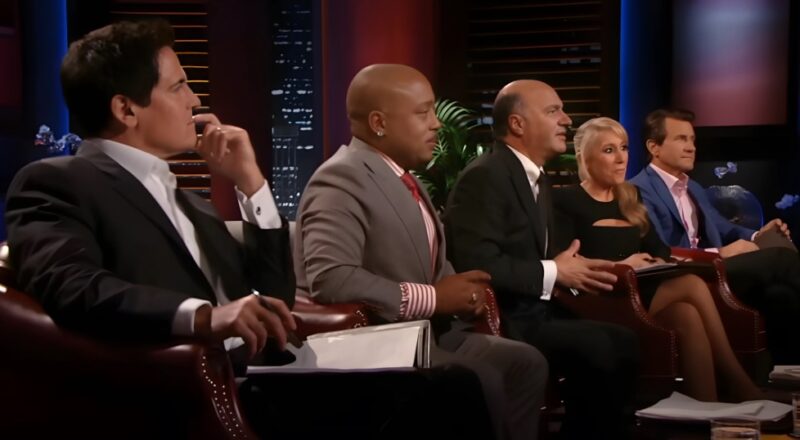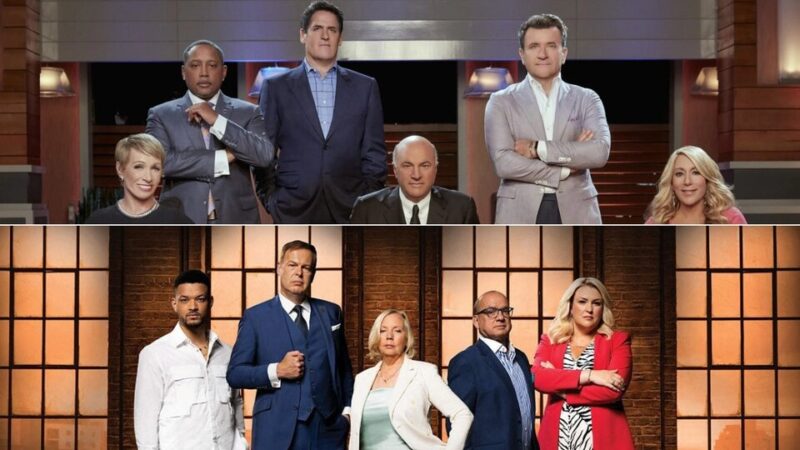Few reality shows promise actual reality, especially when it comes to business success. But Shark Tank isn’t your typical reality show.
The show has launched more than a handful of businesses into real-world success—though admittedly, a couple might make you question humanity’s collective judgment.
Nevertheless, let’s talk straight about the most lucrative businesses that went from pitching in front of skeptical millionaires to becoming industry giants.
Key Takeaways
- Shark Tank has introduced thousands of entrepreneurial ventures to a national audience.
- The show has significantly increased brand recognition for participating businesses.
- Successful Shark Tank businesses highlight diverse product offerings and innovative solutions.
- Investment from the “Sharks” often leads to skyrocketing sales figures.
- Many brands have gone on to become household names after appearing on the show.
Introduction to Shark Tank Success Stories
Shark Tank is a big chance for entrepreneurs to show off their new ideas. On this TV show, people with big dreams share their plans with the “Sharks.” These investors can make or break a business with their advice.
Businesses that do well on Shark Tank have a few things in common. They have a product that people really want and a unique idea. Getting money from the Sharks helps them grow fast and reach more customers. For example, the different Sharks help some companies stand out because of their new ideas and smart marketing.
Looking at these success stories teaches us a lot about starting a business. It gives us hope and useful tips for our own business dreams.
1. Bombas: The Socially Responsible Sock Company
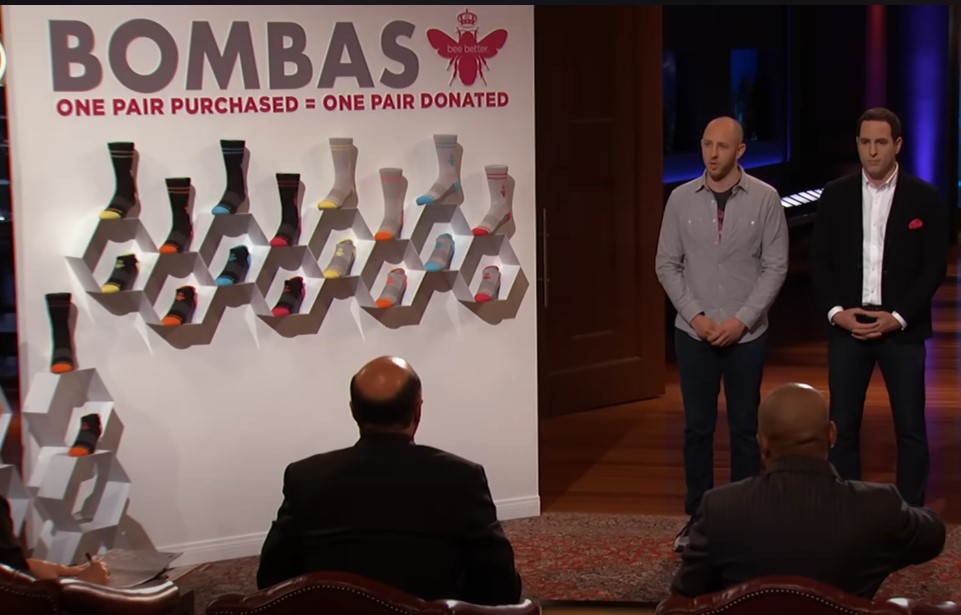
Randy Goldberg and David Heath took the common sock and turned it into a philanthropic powerhouse.
Many dismiss everyday basics as ordinary merchandise, but Bombas soared by gifting a pair to those in need for every sale.
The duo pitched the concept in 2014, snagging $200,000 from Daymond John for 17.5% equity. Some people suspected a sock business might seem trivial.
Yet brand loyalty soared once customers noticed the quality and appreciated that philanthropic model.
- By 2018, annual revenue rocketed past $100 million.
- Retail sales reached $1.3 billion by late 2023.
- Mission-focused marketing resonated with socially conscious buyers.
Bombas has hit big sales numbers, over $1 billion. This shows their unique approach works. It has won over many customers.
By mixing business with helping others, Bombas has set a great example. It shows that doing good can lead to big success.
2. Scrub Daddy: The Game-Changing Sponge
A grin-shaped sponge that hardens in cold water yet softens in warm water might seem whimsical. Aaron Krause pitched that invention and reeled in Lori Greiner, who invested $200,000 for 20% equity. Scrub Daddy really took off.
- Over $209 million in sales
- Continual expansion of product lines, including Scrub Mommy and specialized cleaning products
- Widespread popularity on shopping channels, in retail stores, and online
Revenue Growth After Shark Tank
After Lori Greiner invested, Scrub Daddy’s sales soared. Good marketing and a great product led to $926 million in sales. This shows how well a good product and smart business can do.
| Year | Sales Growth ($ millions) | Key Developments |
|---|---|---|
| 2012 | 3 | Product launch and initial retail partnerships. |
| 2013 | 10 | Expansion into grocery chains. |
| 2014 | 50 | Shark Tank appearance significantly boosts exposure. |
| 2015 | 200 | Introduction of new product variations. |
| 2019 | 500 | International market entry and brand collaborations. |
| 2022 | 926 | Launch of a comprehensive marketing campaign. |
3. Squatty Potty: A Humorous Take on Bathroom Essentials
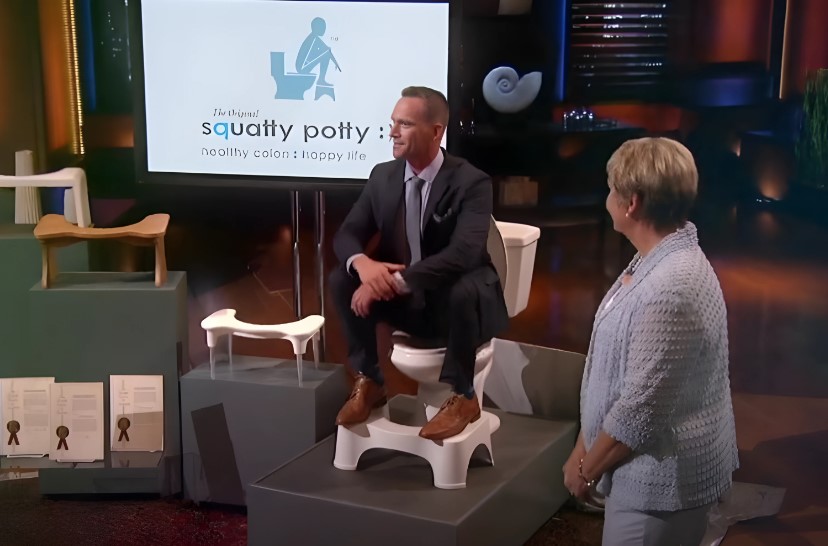
A stool designed to promote better bathroom posture might cause giggles by Squatty Potty. The concept arrived on the show with founders who landed $350,000 from Lori Greiner for a 10% stake.
- Over $164 million in sales to date
- Recognition as an item that helps people approach a mundane activity in a healthier way
- Frequent appearances on talk shows and in comedic ads
The Squatty Potty’s ads went viral, thanks to a funny unicorn ad. This caught everyone’s eye. It made people talk about the product in a good way. After Shark Tank, Squatty Potty sales skyrocketed to $260 million. Its marketing was key to this success. People loved it, thanks to the show and its viral ads.
4. The Comfy
View this post on Instagram
A hooded blanket designed by two brothers who pitched their creation and caught Barbara Corcoran’s attention.
Some might have thought wearing a giant fuzzy bag was ridiculous, but that comedic spark helped secure a $50,000 investment for 30% equity.
- Over $468 million in sales
- Rapid global acceptance as a cozy staple for cold nights
- Impressive endorsements from celebrities and influencers
5. Tipsy Elves: Taking Holiday Apparel to New Heights

Tipsy Elves is a brand specializing in holiday-themed attire that’s slightly off-kilter. Evan Mendelsohn and Nick Morton secured $100,000 from Robert Herjavec for 10% equity.
- Initial annual revenue at $900,000 before appearing on TV
- Shot up to $8 million soon after the investment
- Continued momentum toward $12 million and beyond in subsequent years
6. Cousins Maine Lobster: Bringing Lobster to the Masses
Two cousins from Maine introduced premium lobster rolls to West Coast diners.
A $55,000 deal from Barbara Corcoran for 15% equity transformed one food truck into a nationwide phenomenon.
- Rapid development into a franchise with over 20 trucks
- Launch of an online seafood delivery platform
- Partnerships with major networks and news outlets
7. The Bouqs Company: A Sustainable Floral Experience
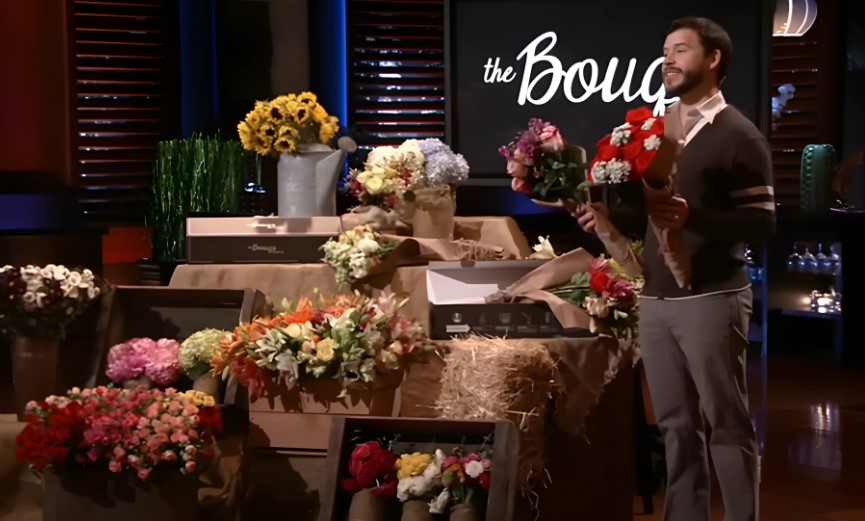
The Bouqs Company is an online flower delivery service that missed out on an actual deal during its time on the program, yet generated major buzz afterward.
The eco-conscious model involves farm-direct sourcing and a supply chain that supports local growers.
- $640 million in lifetime sales
- Endorsement from Robert Herjavec, who used the service for his wedding
- Emphasis on sustainability and cost savings for consumers
8. Rugged Maniac
@founders.ceo Rugged Maniac’s Bull Run A Thrilling New Venture! #sharktank #buisnesstiktok #invention #smallbusiness #mostviralvideo #sharkweek #buisness ♬ i was only temporary 2 u – my head is empty
A company that organizes large-scale obstacle courses for thrill-seekers. Founders Brad Scudder and Rob Dickens pitched a mud run concept, leading Mark Cuban to invest $1.75 million for 25% equity.
- Growth from $4.2 million to $10.5 million in sales within two years
- Expansion to over 28 cities across the United States and Canada
- Emphasis on fun and camaraderie over hardcore athleticism
9. Ten Thirty One Productions
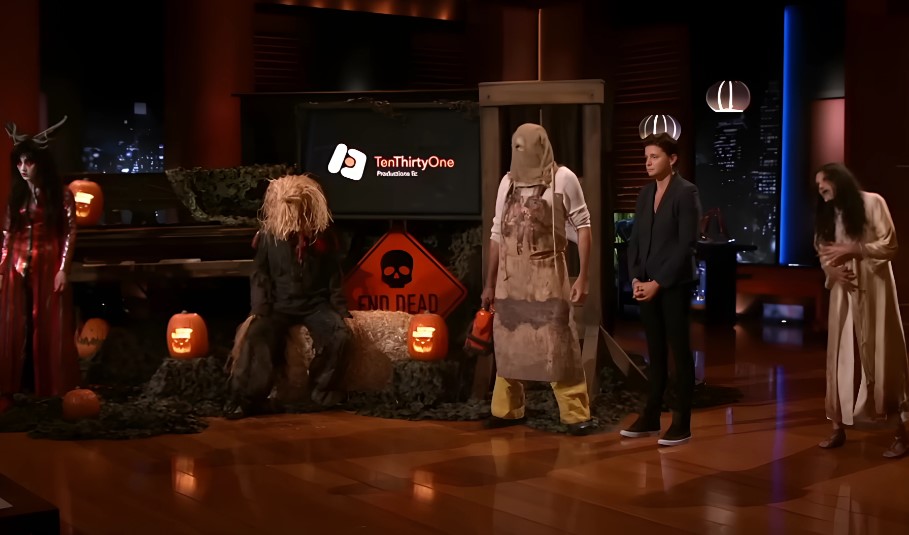
Melissa Carbone’s eerie attractions, including the Los Angeles Haunted Hayride, reeled in Mark Cuban for a $2 million investment in exchange for 20% equity.
- Expansion beyond Los Angeles with the New York Haunted Hayride
- Introduction of experiences such as the Great Horror Campout and Ghost Ship
- Acquisition by Thirteenth Floor Entertainment Group in 2018
Important note: Rugged Maniac has reached out to registered racers advising them that they have no plans of continuing to operate in 2024.
10. GrooveBook
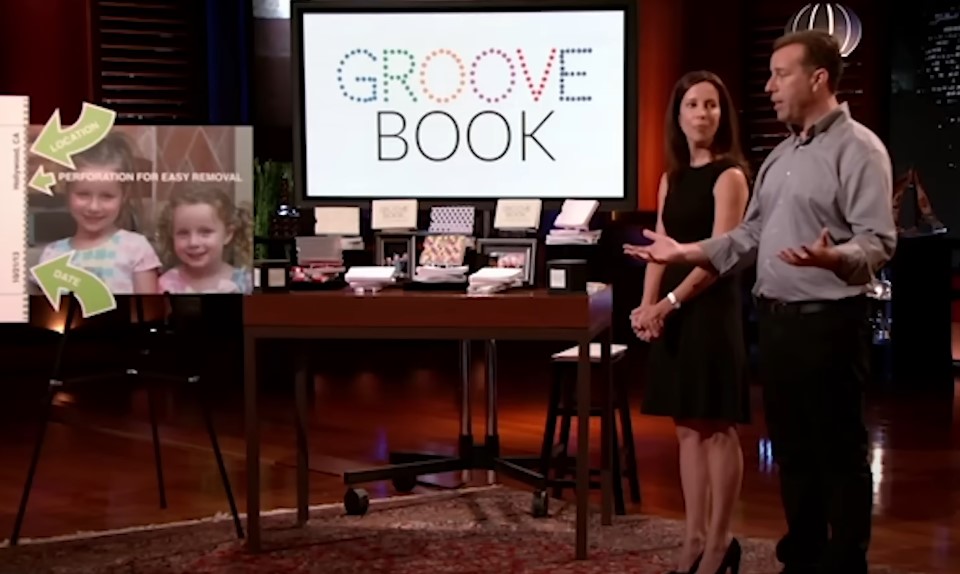
GrooveBook is a subscription-based photo printing service that monetized memories. Founders Julie and Brian Whiteman pitched a novel concept involving monthly photo books created from smartphone images.
- Acquisition by Shutterfly in 2014 for $14.5 million
- A simple way for users to preserve and share pictures
- A loyal following that preferred tangible albums over purely digital storage
11. Everlywell: Revolutionizing Home Health Testing
Everlywell has changed the game in healthcare. Now, people can do health tests at home. This is big, thanks to the COVID-19 pandemic. It shows how we’re changing how we check our health.
Home health testing is making healthcare better. Everlywell offers tests for many health needs. This is a big step towards making health easier and more personal.
Everlywell grew fast, thanks to big investments. Lori Greiner was a key investor. Now, they’ve made over $1.1 billion in sales. This shows how innovation can lead to big success.
| Year | Sales Revenue ($) | Key Product Launches |
|---|---|---|
| 2016 | 5 million | Thyroid Test |
| 2018 | 50 million | Food Sensitivity Test |
| 2020 | 250 million | COVID-19 Test Kit |
| 2022 | 1.1 billion | Expanded Hormonal Tests |
12. Simply Fit Board: Engaging Fitness Solutions
The Simply Fit Board is a mix of fun and fitness. It’s a portable board that helps strengthen your core. It was made by Gloria Hoffman and Linda Clark.
They became famous after appearing on Shark Tank. Lori Greiner invested in them. This helped them get into the fitness market fast.
The board has sold a lot since it came out. It’s made over $174 million in sales. This shows it’s a big hit in the fitness world.
It’s not just about sales. It’s also made working out at home fun. For more on the Simply Fit Board, check out this link.
13. Lovepop: Revolutionizing Greeting Cards
Lovepop changed the way we think about greeting cards. They made cards that pop up and are full of art and tech. These 3D designs come from Japanese kirigami art, making cards more than just paper.
Since Kevin O’Leary invested, Lovepop grew a lot. They now reach more people than ever before.
Lovepop’s cool designs attract many people. They want to find special ways to show love and thanks. Their cards have become very popular, making over $300 million in sales.
Lovepop tells stories and makes cards personal. They focus on quality and creativity. This makes them stand out in a crowded market.
As they grow, Lovepop keeps making cards that surprise and delight. They’re always looking for new ways to make cards special.
14. DUDE Wipes: Redefining Men’s Personal Care
DUDE Wipes is changing the game in men’s hygiene. It was created to meet men’s special needs. The founders saw that old wipes didn’t cut it, so they made new ones just for guys.
Market Adaptation and Sales Achievements
Ryan Meegan, Sean Riley, and Jeff Klimkowski started DUDE Wipes. They knew men needed better hygiene options. Their fun brand and humor won over many fans.
Mark Cuban’s investment helped a lot. It let them make more wipes and reach more people. DUDE Wipes has sold over $340 million worth of products. This shows how good branding can grow a business.
| Key Metrics | DUDE Wipes |
|---|---|
| Year Founded | 2012 |
| Investment from Shark Tank | $300,000 |
| Lifetime Sales | $340 million+ |
| Target Audience | Men seeking personal care products |
| Key Features | Flushable, hypoallergenic, and extra-large wipes |
Summary
Reality television can sometimes feel contrived, but the success stories from that entrepreneurial showcase prove that big dreams and a brief national spotlight can spawn real ventures.
Socks, sponges, stools, or spooky hayrides—an unexpected array of products found robust markets. Keen marketing, persistent founders, and wise investor partnerships shaped the outcomes.
One might poke fun at the idea of a unicorn demonstration for a bathroom product, yet profit margins don’t lie. Many are left wondering which wild idea will catch the sharks’ eyes next.
FAQs
Dave Mustaine is a business writer and startup analyst at Sharkalytics.com. His articles break down what happens after the cameras stop rolling, highlighting both big wins and behind-the-scenes challenges.
With a background in entrepreneurship and data analytics, Dave brings a sharp, practical lens to startup success and failure. When he’s not writing, he mentors founders and speaks at entrepreneur events.

